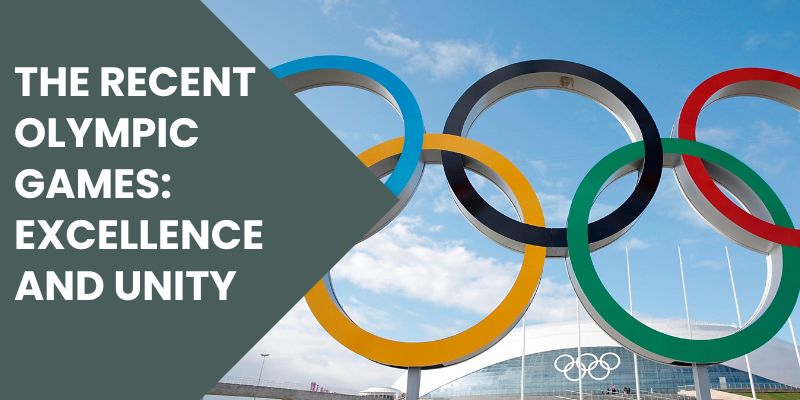The most recent Olympic Games, officially known as the Games of the XXXII Olympiad, were held in Tokyo, Japan, from July 23 to August 8, 2021. Originally scheduled for 2020, the event was postponed by one year due to the global COVID-19 pandemic, marking the first time in history that the Olympics were rescheduled rather than canceled. Despite the unprecedented challenges, the Tokyo 2020 Olympics showcased the resilience and determination of athletes from around the world, who came together to compete at the highest level of sport. This article provides a comprehensive overview of the Tokyo 2020 Olympics, highlighting key moments, standout performances, and the significance of the event in a global context.
The Distinct Challenges of Tokyo 2020
The Tokyo 2020 Olympics faced numerous challenges, primarily due to the ongoing COVID-19 pandemic. The decision to postpone the Games was made in March 2020, after extensive consultations with the International Olympic Committee (IOC), the Tokyo 2020 Organizing Committee, and the Japanese government. The postponement created logistical challenges, including the reorganization of venues, the rescheduling of events, and the implementation of strict health and safety protocols.
Athletes had to adapt to the uncertainty and disruption caused by the pandemic, with many experiencing changes in their training routines, qualification processes, and mental health struggles. Despite these hurdles, the spirit of the Olympics prevailed, and the Games provided a platform for athletes to demonstrate their perseverance and dedication.
Opening Ceremony and Symbolism
The Tokyo 2020 Olympics officially began with the opening ceremony on July 23, 2021, at the newly constructed National Stadium in Tokyo. The ceremony, which celebrated Japan’s rich culture and history, featured a blend of traditional performances and modern technology. Due to COVID-19 restrictions, the stadium had limited attendance, with only a small number of dignitaries, officials, and media representatives present.
The opening ceremony’s theme, “United by Emotion,” emphasized the power of sport to bring people together, even in challenging times. Athletes from 206 countries and territories paraded with their national flags, showcasing the diversity and unity of the global community. The symbolic lighting of the Olympic cauldron was performed by Japanese tennis star Naomi Osaka, who represented the spirit of resilience and hope.
Highlighted Moments and Exceptional Performances
The Tokyo 2020 Olympics produced numerous memorable moments and standout performances across various sports. Key highlights include:
- Simone Biles’ Courage and Resilience: American gymnast Simone Biles, widely regarded as one of the greatest gymnasts of all time, made headlines when she withdrew from several events citing mental health concerns. Her decision brought global attention to the importance of mental health in sports and was praised for its courage and authenticity. Biles returned to compete in the balance beam final, winning a bronze medal and inspiring countless athletes around the world.
- Caeleb Dressel’s Dominance in Swimming: American swimmer Caeleb Dressel emerged as one of the standout athletes of the Tokyo 2020 Olympics, winning five gold medals. His exceptional performances in the pool, including setting multiple Olympic records, solidified his status as one of the sport’s brightest stars.
- Elaine Thompson-Herah’s Sprinting Supremacy: Jamaican sprinter Elaine Thompson-Herah continued her dominance on the track, winning gold medals in both the 100 meters and 200 meters events. Her victories made her the first woman in history to defend both titles at consecutive Olympic Games.
- Skateboarding’s Olympic Debut: Skateboarding made its Olympic debut in Tokyo 2020, with young athletes showcasing their skills and creativity. Japanese skaters Yuto Horigome and Momiji Nishiya won gold medals in the men’s and women’s street events, respectively, bringing pride to the host nation.
- Team USA’s Basketball Triumphs: The United States continued its basketball dominance, with both the men’s and women’s teams winning gold medals. The men’s team, led by NBA stars Kevin Durant and Damian Lillard, secured their fourth consecutive Olympic gold. The women’s team, featuring legends like Sue Bird and Diana Taurasi, achieved their seventh consecutive gold medal.
Innovations and Sustainability
The Tokyo 2020 Olympics were notable for their innovative and sustainable initiatives. The organizers prioritized environmental sustainability and introduced several measures to reduce the Games’ ecological footprint. Key initiatives encompassed:
- Recycled Materials: The medals awarded at the Tokyo 2020 Olympics were made from recycled electronic devices, including old mobile phones. This initiative highlighted the importance of recycling and the potential for creating valuable resources from electronic waste.
- Renewable Energy: The energy used to power the Olympic venues came from renewable sources, including solar and biomass energy. This commitment to renewable energy demonstrated Japan’s efforts to promote sustainable practices and reduce carbon emissions.
- Cardboard Beds: Athletes stayed in the Olympic Village on beds made from recyclable cardboard, which were designed to be both sturdy and environmentally friendly. The use of cardboard beds symbolized the commitment to sustainability and minimizing waste.
- Hydrogen-Powered Vehicles: Hydrogen-powered vehicles were used for transportation during the Games, showcasing the potential of clean energy technology. These vehicles produced zero emissions, contributing to the overall goal of reducing the environmental impact of the Olympics.
Legacy and Impact
The Tokyo 2020 Olympics left a lasting legacy and had a significant impact on various aspects of society. Some of the key legacies and impacts include:
- Inspiration and Resilience: The Games provided a source of inspiration and hope during a challenging time for the world. Athletes’ stories of resilience, determination, and perseverance resonated with people globally and highlighted the unifying power of sport.
- Mental Health Awareness: Simone Biles’ decision to prioritize her mental health brought attention to the importance of mental well-being in sports. Her courage sparked important conversations about the pressures faced by athletes and the need for support and resources to address mental health issues.
- Technological Advancements: The Tokyo 2020 Olympics showcased cutting-edge technology, including virtual reality, augmented reality, and advanced broadcasting techniques. These innovations enhanced the viewing experience for audiences around the world and set new standards for future sporting events.
- Cultural Exchange and Unity: The Olympics celebrated cultural diversity and promoted understanding and unity among nations. Athletes from different backgrounds and countries came together to compete, fostering a sense of global camaraderie and mutual respect.
Conclusion
The Tokyo 2020 Olympics will be remembered as a celebration of excellence, resilience, and unity in the face of unprecedented challenges. Despite the hurdles posed by the COVID-19 pandemic, the Games demonstrated the enduring spirit of the Olympic Movement and the power of sport to bring people together. From unforgettable performances to innovative sustainability initiatives, the Tokyo 2020 Olympics left a lasting legacy that will inspire future generations. As the world looks forward to the next Olympic Games, the memories and achievements of Tokyo 2020 will continue to resonate and inspire athletes and fans alike.







